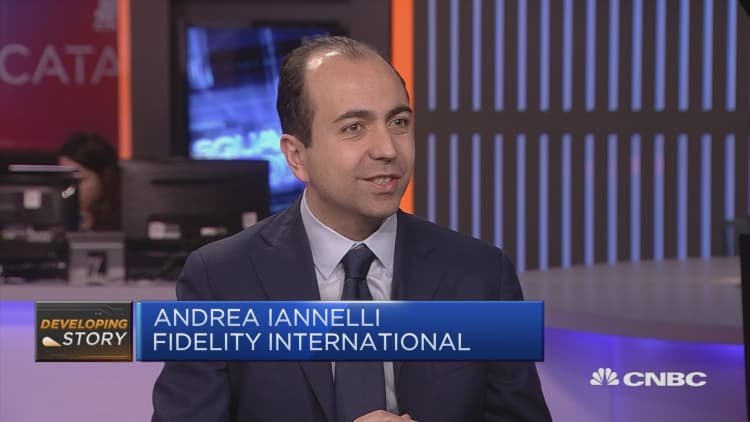
U.S. government debt yields rose Monday as top Republican lawmakers urged President Donald Trump against tariffs on imported steel and aluminum.
The yield on the benchmark 10-year Treasury note rose to 2.881 percent at 4:06 p.m. ET, while the yield on the 30-year Treasury bond was up at 3.151 percent. Bond yields move inversely to prices.
Investors across global markets remained on edge Monday after a surprise announcement came from the U.S. administration last Thursday, when President Donald Trump stated that the U.S. would be imposing new tariffs on aluminum and steel.
A host of international leaders criticized the decision as a potential trade war catalyst. On Monday, GOP leaders including House Speaker Paul Ryan implored the president to reconsider the taxes.
"We are extremely worried about the consequences of a trade war and are urging the White House to not advance with this plan," said AshLee Strong, a spokeswoman for Ryan. "The new tax reform law has boosted the economy and we certainly don't want to jeopardize those gains."
A GOP source told CNBC that Congressional leaders would not rule out potential action down the line should the president stand by the tariffs.
Still, the president appeared undeterred in his protectionist rhetoric Monday, saying that he'd only consider revoking tariffs on steel and aluminum if a new, "fair" NAFTA is signed.
"We have large trade deficits with Mexico and Canada. NAFTA, which is under renegotiation right now, has been a bad deal for U.S.A. Massive relocation of companies & jobs. Tariffs on Steel and Aluminum will only come off if new & fair NAFTA agreement is signed."
"No, we're not backing down," the president said later during an Oval Office meeting with Israeli Prime Minister Benjamin Netanyahu on Monday. "We had a very bad deal with Mexico, we had a very bad deal with NAFTA."
Trump said that the U.S. had been "ripped off" by other countries on trade. "We lost $800 billion on trade," he said. "We are going to take care of it."
Another concern set to dwell on investors' minds is that of higher interest rates. Last week, newly-appointed chair of the U.S. Federal Reserve, Jerome Powell, delivered two speeches to Congress, where he discussed monetary policy and the state of the U.S. economy.
One of his remarks that shook up markets was that the U.S. central bank could raise interest rates three or more times during the course of 2018.
Treasurys
Markets remain on edge overseas, with Asia closing lower as Chinese leaders headed into an annual parliament meeting.
While in Europe, politics dominated following news that early projections in Italy indicated that no party was emerging with a clear majority in the election that took place Sunday.



